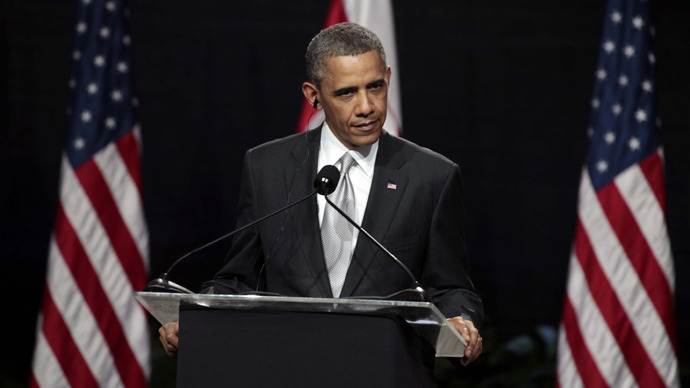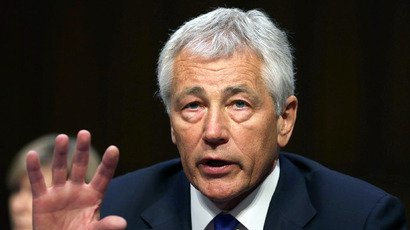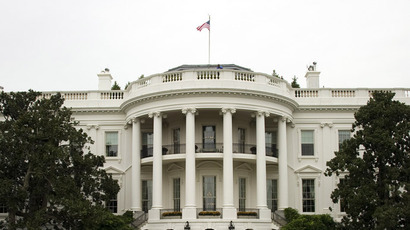Obama ‘does not foresee’ sending ground troops to Syria

US President Barack Obama said he does not yet picture sending ground troops into Syria, while still maintaining that no options will be disregarded if claims of alleged chemical weapons use by the regime are backed up.
Obama’s announcement came Friday at a news conference in the
Costa Rica capital of San Jose, where he said “I do not
foresee” such a situation, although the president continued to
push for a full inquiry into the recent claims of supposed chemical
weapons use by Syria’s Bashar Assad.
Regional leaders whom Obama had consulted on the matter are in
agreement with him, he said.
One of the options being penciled is to send arms to the rebels,
as was suggested by Defense Secretary Chuck Hagel on
Thursday. This is something the US has shied away from for the past
two years, since the start of the uprising in Syria, but also a
notion that appears to be growing in popularity amongst the US
establishment.
Although the US president has come under criticism from Washington critics over his supposedly jumbled approach to Syria, he insisted that the country will not be on the sidelines even as the chemical weapons claims are being verified. The president has consistently noted that any attempts to use such tactics by the regime will be viewed as crossing a “red line” and warrant further action from outside.
“We’re not waiting…we are working to apply every pressure
point that we can on Syria”, he said.
"If in fact there is the kind of systematic use of chemical
weapons inside of Syria, we expect we are going to get additional
further evidence and at that point we will absolutely present that
to the international community," he added.
He also said that any follow-on steps can only be taken after
the US has received verifiable information from sources on the
ground.
"I'm going to make those decisions based on the best evidence
and after careful consultation, because when we rush into things,
when we leap before we look, then not only do we pay a price but
oftentimes we see unintended consequences on the ground. So it's
important that we do it right," the president said.
Officials in the US admit they can only speculate on when any
conclusive evidence of chemical weapons use would be made
available. For its part Syria’s government denies resorting to such
tactics, calling them a fabrication by outside forces.

Lajos Szaszdi, an international affairs and defense analyst,
spoke to RT, expressing his doubts on several points.
He believes that although Obama has been shying away from direct US
involvement in the 2-year Syrian conflict, America is playing the
region like “chess” – trying this or that tactic – all with
the ultimate aim of removing Assad, and in so doing, eliminating a
major enemy of Israel in the region. It is believed that the
escalation towards arming the rebels in the country is really only
public relations theater, as no options were ever really off the
table.
“What they want is the fall of the government in Damascus,
and because all attempts have failed through covert support, now
they’re talking about openly, legally providing weapons to the
rebels. But there are strong indications that since 2012, if not
earlier, weapons have been supplied to the rebels…a covert supply
of weapons, of course – through Turkey and with the assistance of
Saudi, Qatari and Turkish intelligence services”, Szazdi
stressed.
“It’s like a game of chess," he goes on to say. "You eliminate Syria, so you presumably cut off the ties with Iran and Hezbollah and the Iranian influence in the region…and at the same time you eliminate an enemy of the Jewish state. And perhaps, convince the leadership in Israel not to attack Iran, because they got a consolation price, which is the removal of Syria as an existential threat.”














